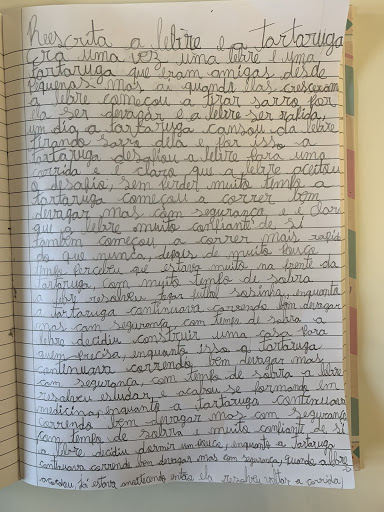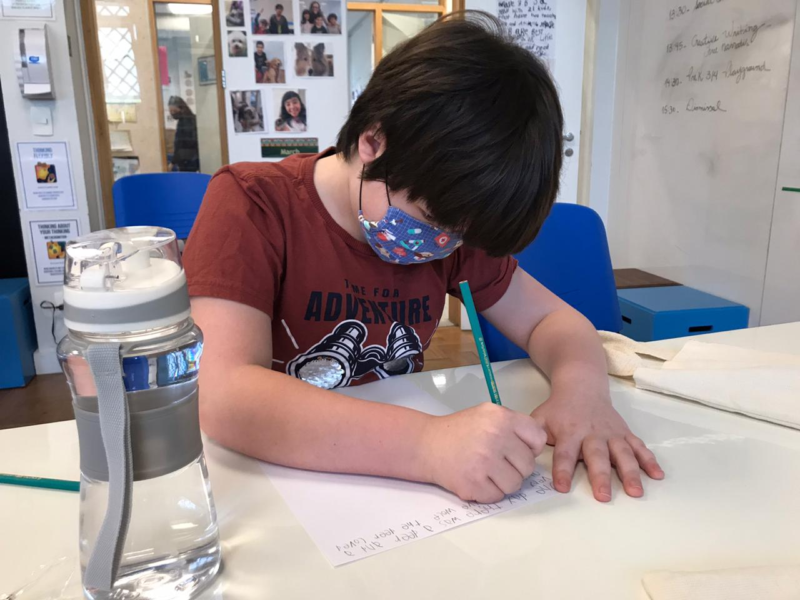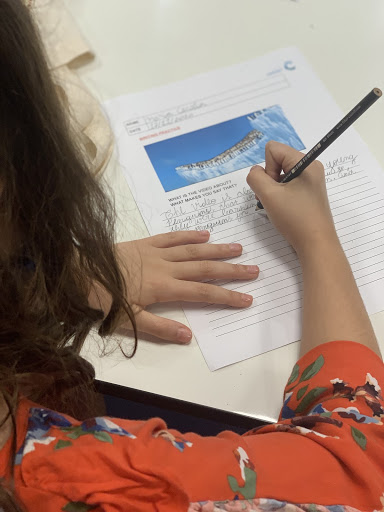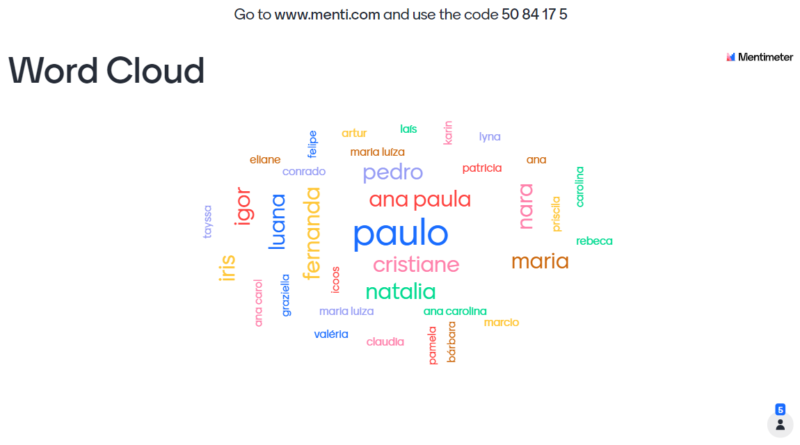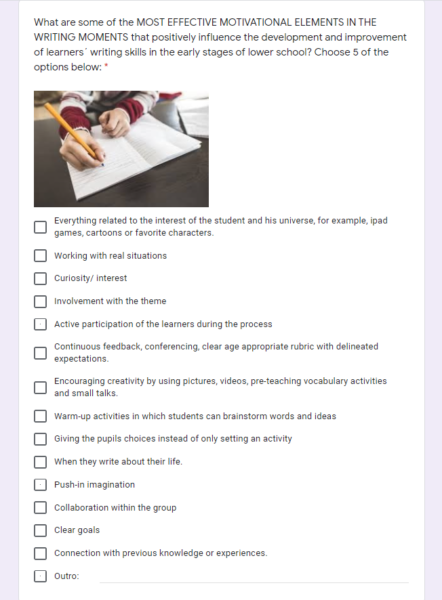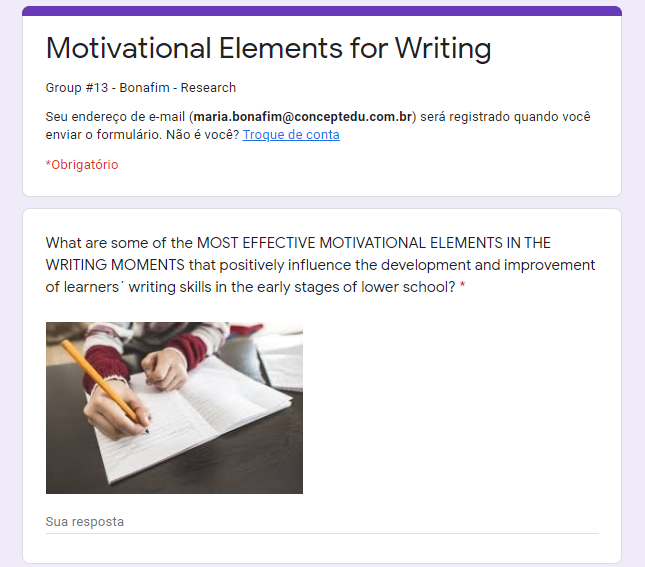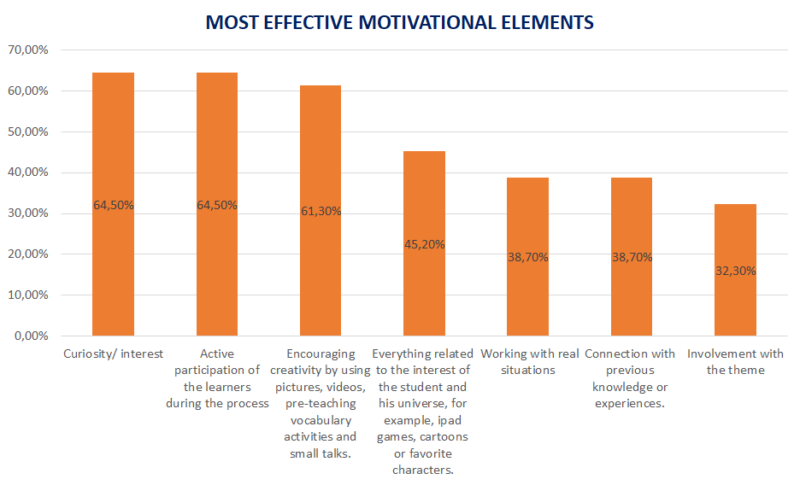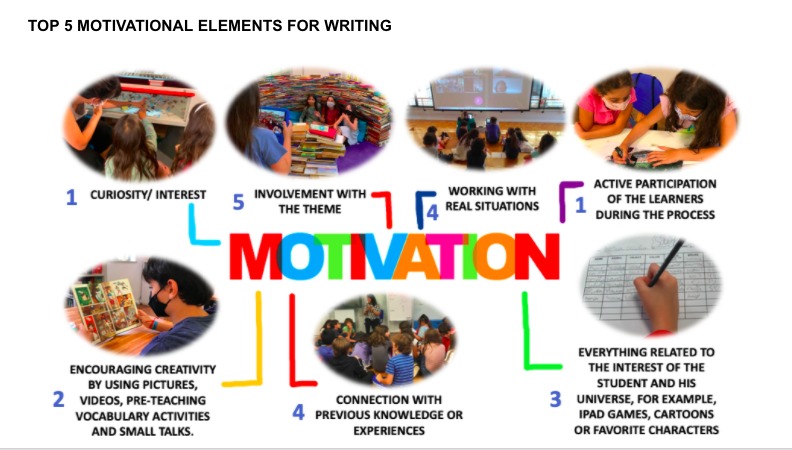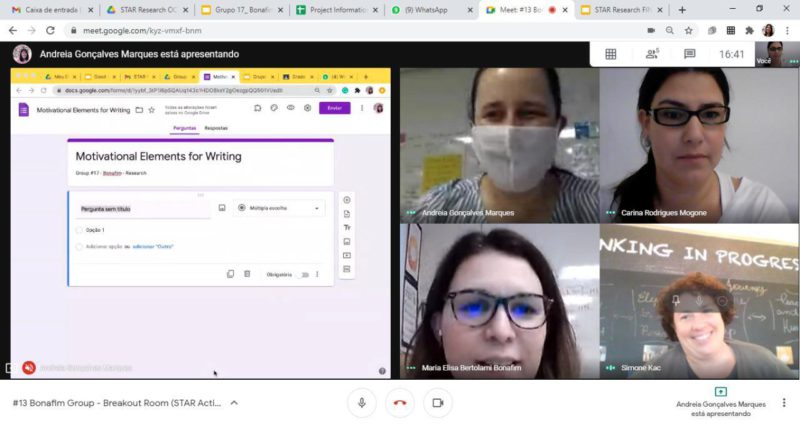Motivational Elements for Writing
What are some of the most effective motivational elements in the writing moments that positively influence the development and improvement of learners´ writing skills in the early stages of lower school?
General topic of interest
Feedback Culture
Interactions learners/ learners
learners/ knowledge
learners/ educator
learners/ environment
Playfulness
Different responses within the same group
Participants
Survey other teachers on their practices and what they think is impactful in a descriptive study (N=49)
Data collecting approach
We created a Google form that was sent to educators (October 2020) in order to find out what the motivational elements that positively impact learner's writing skills were. Based on educators answers, we created a second Google form that was sent to educators (November 2020) in order to find out the most effective motivational elements that positively impact learner's writing skills.
Emerging results
MOTIVATIONAL ELEMENTS FOR WRITING:
- Everything related to the interest of the student and his universe, for example, ipad games, cartoons or favorite characters.
- Trazer conteúdos relacionados ao interesse da criança, a seu universo. Além do mais, utilizar o Growth Mindset.
- Finding elements that triggers student’s interest: video games, iPad, comics for instance.
- 4th graders feel motivated and I can notice not only their engagement, but also more elaborated and accurate texts when they are working with real situations, for example if they are asked to - Write a letter to someone they know and we do send the letter.
- Com a curiosidade, no 3 ano eles estavam ansiosos em aprender a letra cursiva, por isso aprenderam rápido.
- I think it is the inspiration that comes through in their involvement with the theme.
- The degree of knowledge that students have about the topic. I think that the dynamic interaction of the educator and the active participation of the class with the theme makes the students more motivated.
- One of the factors that motivate students is a topic of interest that connects with them.
- Continuous feedback, conferencing, clear age appropriate rubric with delineated expectations.
- Encouraging creativity by using pictures, videos, pre-teaching vocabulary activities and small talks.
- Warm-up activities in which students can brainstorm words and ideas and share an connect to personal experiences
- Give the pupils choices instead of only setting an activity. Let them be creative and have their voice so they can express themselves. Example: instead of just asking them to re-write a narrative or answer formal questions based on a narrative text, let them create their own.
- When they write about their life.
- When the essay has a real purpose
- Imagery / Real / Push-in imagination
- I think writing for a real audience is very motivational. Students are usually asked to produce pieces of writing only for correction purposes most of the times.
- Os estudantes ficam motivados, quando: o tema faz parte do universo deles e sentem que o educador os auxilia sem criticar.
- I think working with subjects connected to the child's interests are probably very effective since they will be more involved in the writing process.
- In my opinion that are some elements we could use to help students such as enhance their interest in reading, offer opportunities for self-development, foster collaboration within the group, encourage writing about things they like, don’t punish failure and set clear goals.
THE MOST EFFECTIVE MOTIVATIONAL ELEMENTS FOR WRITING:
- Curiosity/Interest
- Active participation of the learners during the process
- Encouraging creativity by using pictures, videos, pre-teaching vocabulary activities and small talks.
- Everything related to the interest of the students and his universe.
- Working with real situations.
- Connection with previous knowledge or experiences.
- Involvement with the theme.
Reflections
Based on the data we have collected and interpreted, some of the most effective motivational elements in the writing moments that positively influence the development and improvement of learners´ writing skills in the early stages of lower school are fostering children’s curiosity and interest, learner’s active participation during the process, and encouraging creativity by using pictures, videos, pre-teaching vocabulary activities and small talks. By interpreting the results, we understand that when the learners are the protagonists and educators provide an environment that enables a student centered learning, the chances for young children to engage and succeed are higher.
OUR FINDINGS ALONG THE RESEARCH JOURNEY HAVE POSITIVELY INFLUENCED OUR PRACTICES: click here to watch a video with examples of some of our findings in practice.
DATA COLLECTED IN PRACTICE: click here to see some examples.
RESOURCES: click here to find our resource (inspiration and guidance)
Next steps
We are going to keep using the data provided in our survey when planning our future lessons taking into consideration the motivational elements that most impact our learners´writing process.
OUR TAKEAWAYS AS TEACHERS:
We want to keep our learners motivated and foster creativity, since it influences learners’ confidence (ability to question without fear); learners’ observation (seeing problems/ideas); learners’ humility (knowing you don’t know everything; learners’ mindfulness (thinking on how to think); learners’ curiosity (exploring and experimenting); learners’ energy (to explore and tinker); and learners’ action (not just thinking, but doing).
Creativity is a key element for improving writing skills in the early stages of lower school.






